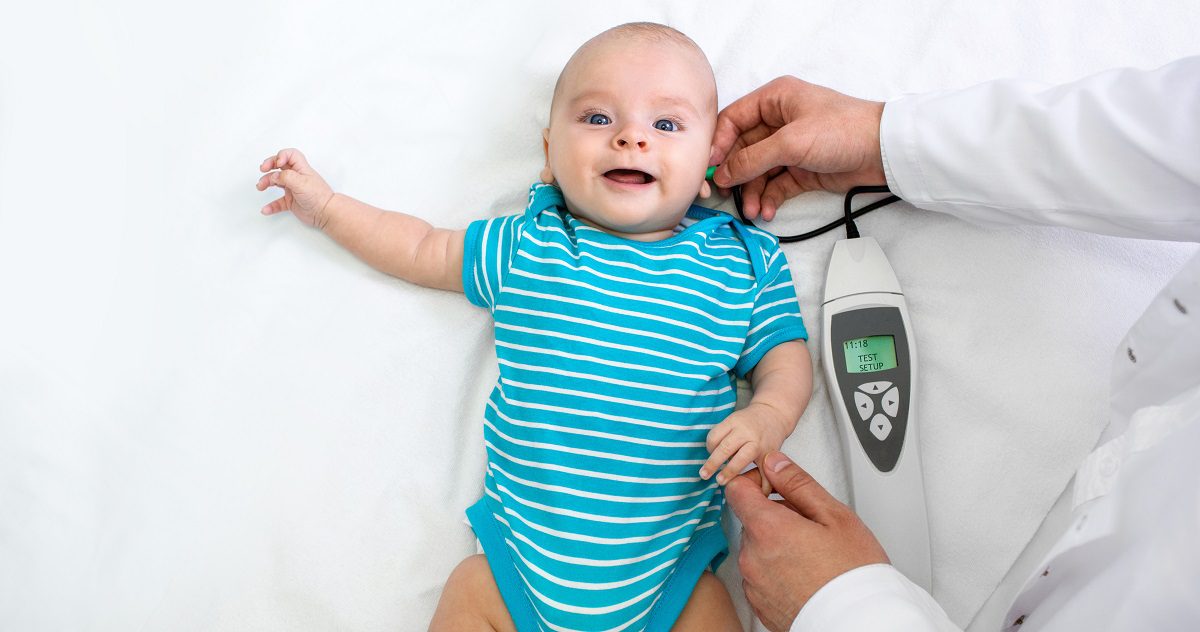When Should I Update My Hearing Aids?
If you’ve been wearing hearing aids for a while, you’re

By: Jill Rosenberg | October 5, 2022
The key to good parenting is knowing when to follow our instincts and when to stop being afraid of things that don’t make sense. When children don’t talk, it’s even more complex – we must guess what their signs mean and what we need to do. After all, they are so small and depend on us for everything!
When it comes to hearing loss in children, trust your gut and have your child’s hearing and ear health checked. A hearing test is quick and doesn’t hurt. If your hearing isn’t good, it can have many effects, especially on how your speech develops when you’re young. If treatment is needed, whether temporarily or permanently, it is always best to start as soon as possible!
You are the first line of defense
Parents usually notice changes in their child’s hearing or signs of possible hearing loss long before their child’s doctor does. You might call this intuition. Parents must fight for their kids if a health problem is suspected.
And your doctor will probably value what you have to say. The American Academy of Pediatrics tells pediatric care providers, “Any child whose parent is worried about how well the child hears should be referred for behavioral audiometry as soon as possible.” This rule comes from knowing parents in the past, which is clear.
Types of hearing loss in children
There are two kinds of hearing loss in children: those born with it and those they get later in life.
Hearing loss that was present at birth is called congenital hearing loss. A few things could cause this, such as a genetic condition or problems while the baby is in the womb or right after birth. More than half of all cases of hearing loss from birth are caused by genes. Conditions of the mother during pregnancy could be to blame for other causes that happen during pregnancy or birth. Infections, illnesses, or toxins can cause congenital hearing loss in the mother while pregnant.
Hearing loss in children can also be acquired. This means that the child can’t hear after they are born. Most of the time, a disease, condition, or injury leads to hearing loss. In the worst cases, ear infections like otitis media can cause people to lose hearing. Meningitis, measles, encephalitis, chicken pox, mumps, or influenza are other dangerous diseases that can cause hearing loss. Hearing loss can also be caused by trauma, like a head injury or being in a loud place for a long time.
What is Otitis Media?
Otitis Media is a prevalent condition affecting a young child’s hearing ability. It is so common that it is the most common disease diagnosed in babies and young children. By age three, 75% of children have had at least one case of otitis media.
The condition is an inflammation of the middle ear, the area right behind the eardrum. When the eustachian tube, which carries fluid from the middle ear to the back of the throat, is blocked, inflammation happens. This tube gets blocked more often in kids because the tube angle is more horizontal when they are young. As they age and grow, the tube angle changes more dramatically.
Hearing health is essential.
If your child complains of pain in their ears, tugs, rubs, or pulls at their ears, or looks tired and listless, you may want to talk to their doctor about otitis media. It’s easy to treat, but if you don’t get it checked out, it could cause problems with your hearing in the future.
Your child may have trouble hearing because of something else. These early years of life are crucial for development. So much of speech and language grow in the first few years because of the connections made. Hearing is how these connections are made and strengthened. Most of the time, we listen to how our primary caregivers and other people around us talk and then copy them.
Don’t delay
If you think your child has trouble hearing, letting your child’s doctor know about your worries can only help. Hearing loss or the risk of hearing loss could significantly affect their early development if something is done right away.
We help people of all ages with their hearing, including kids and teens. Contact us right away to set up a consultation.

If you’ve been wearing hearing aids for a while, you’re
By: admin | May 5, 2022

According to a World Health Organization estimate, about 466 million
By: admin | May 5, 2022

The following scenario will be familiar to anyone who suffers from hearing
By: admin | March 22, 2022
